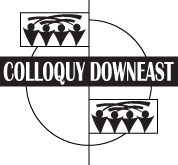My Body, Your Choice
| |||||||
In Planned Parenthood v. Casey, the US Supreme Court stated: “Our obligation is to define the liberty of all, not to mandate our own moral code.” Yet recent cases have sparked questions of whether the Court is doing just that: whether it be defining who one is allowed to marry, where one is allowed to go to school, whether to be a parent, or whether one is just allowed to “be” is dependent on the decisions of the US Supreme Court. By reviewing the opinions of the US Supreme Court, this Colloquy will examine the continuing effect of these decisions on our most personal understanding: who we are.
Kim L. Lengert is the founding attorney of Lengert Law, serving people throughout Pennsylvania. Kim is a past Chair of the Pennsylvania Bar Association’s Solo & Small Firm Section, which represents the interests of approximately 20,000 attorneys in Pennsylvania; a former Representative in the Pa Bar House of Delegates; and a Member of the Solo & Small Firm Council. Kim is also an ordained pastor focusing on congregation growth, and provides worship leadership for local congregations. Now residing in Deer Isle, Kim is a recognized speaker for community, religious, and legal education organizations on Estate Planning, Family Law, Technology in Law Firms, Solo Firm development, Theology, and Social Issues.
Syllabus/Reading
Syllabus
Reading: The reading will consist of the controlling Opinions rendered in each case, although the use of Oyez.com as a source will allow participants to either increase or decrease their gathering of information as a summary, broadcast of the oral argument, individual opinions, or a syllabus. Each of these options is available – in addition to the controlling Opinion – on the website.
Case references: (Each case has a link to access a summary and opinion “View Case” – the use of Oyez.org allows for a complete access to each case without multiple sources.)
Session 1: Race
In the past few years we have seen a growing amount of violence between Americans of different ethnic and religious values, the action challenging the future application of established cases.
Plessy v. Ferguson 163 U.S. 537 (1896) A challenge to segregations of railway travel. https://www.oyez.org/cases/1850-1900/163us537
Korematsu v. United States 323 U.S. 214 (1944) Addresses the internment of Japanese Americans. https://www.oyez.org/cases/1940-1955/323us214
Brown v. Board of Education 347 U.S. 483 (1954) Challenges racial segregation of school children.https://caselaw.findlaw.com/us-supreme-court/347/483.html
Loving v. Virginia 388 U.S. 1 (1967) Challenges the illegality of interracial marriage. https://www.oyez.org/cases/1966/395
Regents of the University of California v. Bakke 438 U.S. 265 (1978) Addresses the equity of affirmative action.https://www.oyez.org/cases/1979/76-811
Dred Scott v. Sandford 60 U.S. 393 (1857) Challenges whether location affects emancipation. https://www.oyez.org/cases/1850-1900/60us393
Session 2: Abortion
Access to an abortion is a current challenge in many states, affecting the understanding of a woman’s body and subsequently raising the question of constitutional identity during pregnancy.
Dobbs v. Jackson Women’s Health Organization, 597 U.S. ___ (2022). Does precedent no longer matter?https://www.oyez.org/cases/2021/19-1392
Griswold v. Connecticut 381 U.S. 479 (1965) Is the use of contraception a private matter? https://www.oyez.org/cases/1964/496
Roe v. Wade 410 U.S. 113 (1973) Does a woman have a right to abortion? https://www.oyez.org/cases/1971/70-18
Planned Parenthood of Se. Pa. v. Casey 505 U.S. 833 (1992) Is the requirement of another’s consent a violation of a woman’s right to choose? https://www.oyez.org/cases/1991/91-744
Whole Woman’s Health et al v. Jackson, Judge, District Court of Texas, 114th District, et al No. 21- 463 (2021) Is the inability to “sue” the key to overriding constitutional authority? https://www.oyez.org/cases/2021/21-463
Session 3: LGBTQ
Recent actions by states directly affect the LGBTQ community, even though the actions are indirect in their construction. Will the narrowing of issues override previous rulings?
Bowers v. Hardwick 478 U.S. 186 (1986) Challenges the legality of consensual same-gender sex in one’s own bedroom. https://www.oyez.org/cases/1985/85-140
Lawrence v. Texas 539 U.S. 558 (2003) Basically, does the constitution allow private, adult, consensual sex? https://www.oyez.org/cases/2002/02-102
Romers v. Evans 517 U.S. 620 (1996) Challenges discrimination based on sexual orientation. https://www.oyez.org/cases/1995/94-1039
U.S. v. Windsor 133 S.Ct. 2675 (2013) Challenges the constitutionality of the Defense of Marriage Act. https://www.oyez.org/cases/2012/12-307
Hollingsworth v. Perry 133 S.Ct. 2652 (2013) Who gets to decide whether a same-sex marriage is legal?https://www.oyez.org/cases/2012/12-144
Obegefell v. Hodges 576 U.S. ___ (2015) No. 14–556 Is this Dred Scott v. Sandford all over again? https://www.oyez.org/cases/2014/14-556
▼ Registration
Registration
Bookings are now closed (or the colloquy has been cancelled)
We aren't currently accepting bookings for My Body, Your Choice.
If you are trying to pay for a colloquy that you've already attended or have questions about refunds, please contact our Treasurer to work out the details.
▲ Hide...
